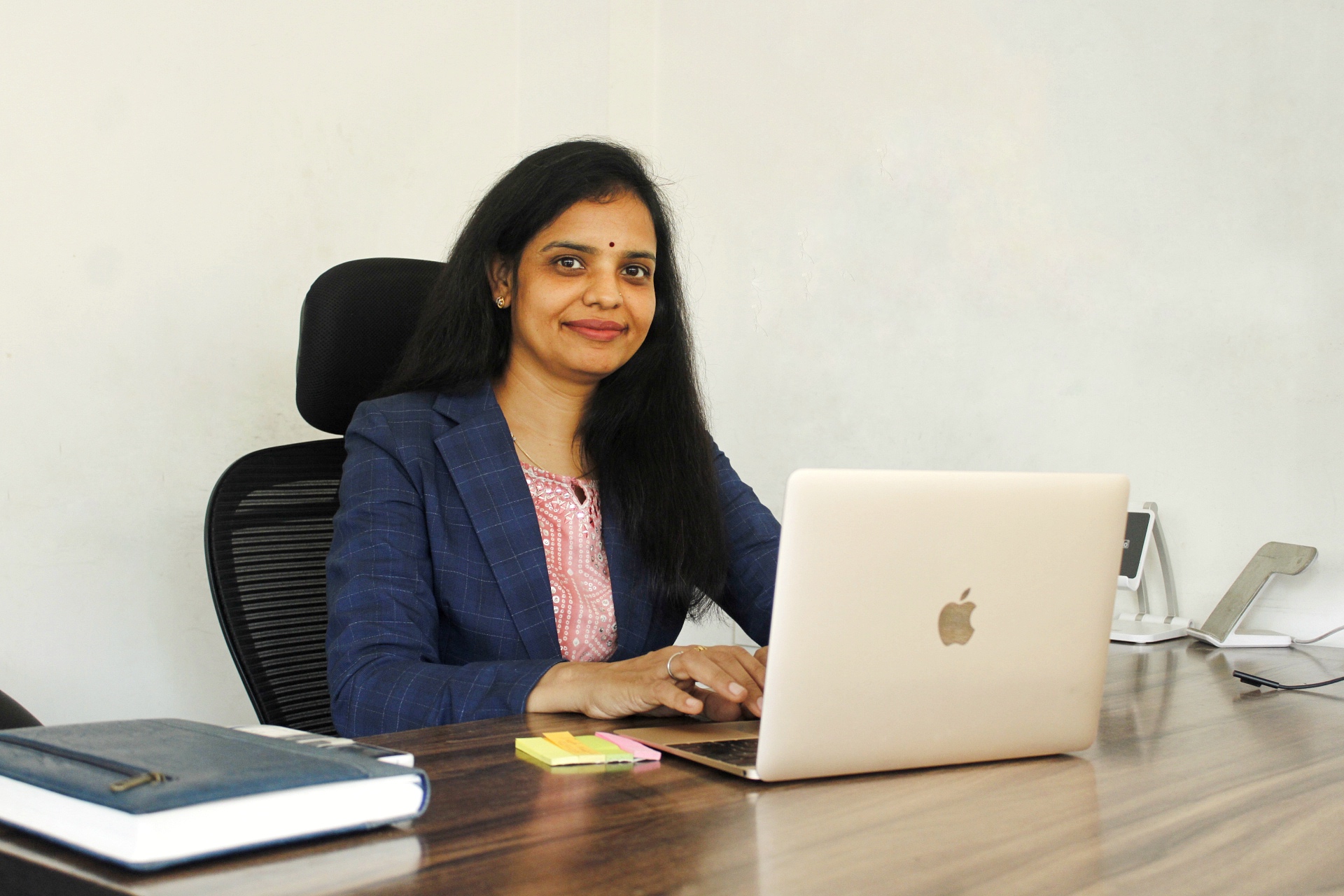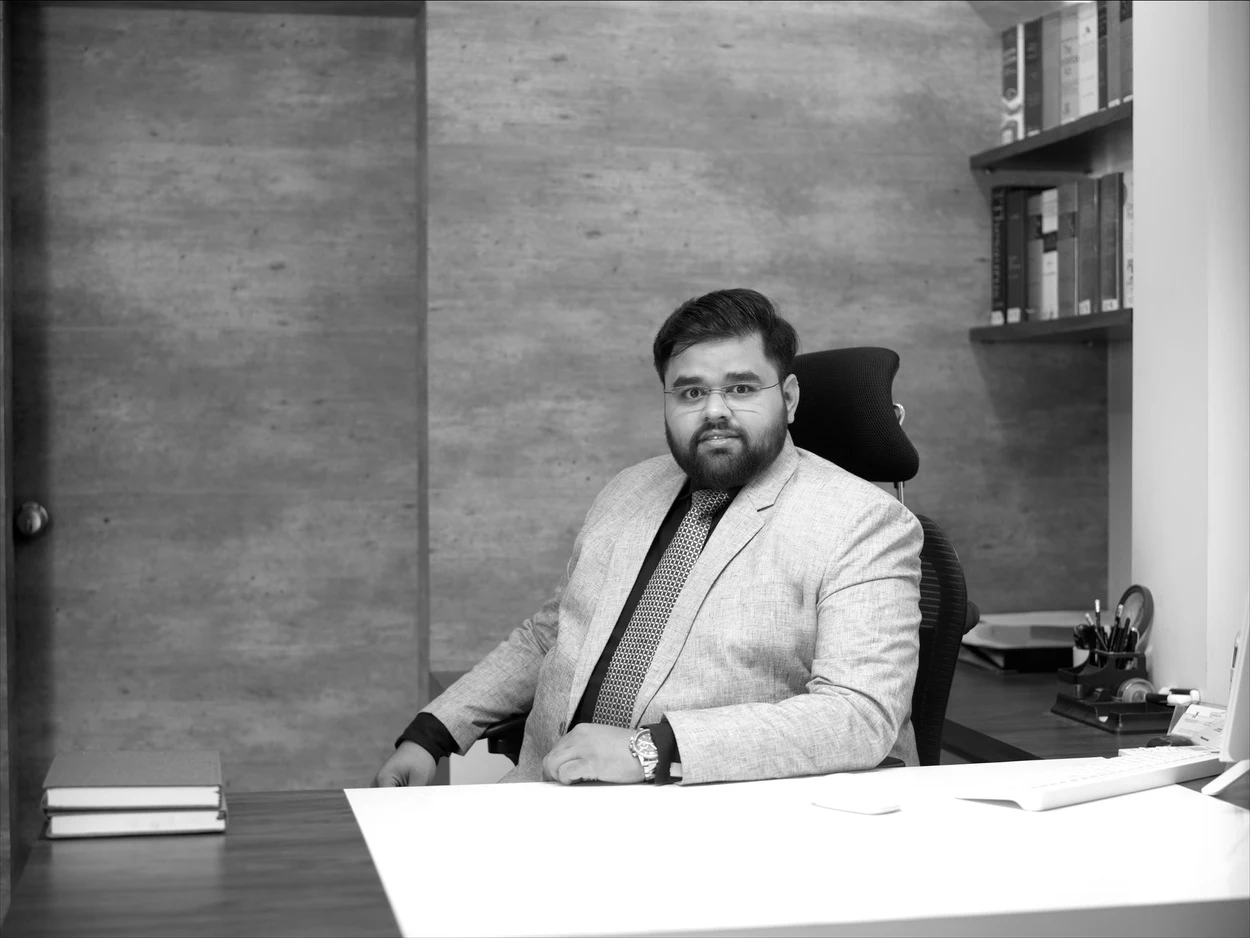This interview has been published by Namrata Singh and The SuperLawyer Team

Could you please introduce yourself to our readers and share with us how you decided to pursue a career in law? What challenges did you encounter when starting your career, and how did you overcome them?
Hello, readers. My name is Sapna Patwa, and I am a former judge who served in the Madhya Pradesh judiciary for 8 years. Currently, I am practicing at the High Court of Madhya Pradesh.
My journey into pursuing a career in law has been a unique one, filled with challenges. Initially, after completing my undergraduate and postgraduate studies in commerce (M.Com), I got married, thereafter I took a break from academics to focus on raising my children. However, after a gap of six years, my husband encouraged me to continue my education, and it was his support and motivation that reignited my passion for learning.
In my first year of pursuing my LL.M, I became acquainted with the field of judicial services. Learning about this path sparked my interest, and from then on, I dedicated myself to prepare for it. Despite the challenges of balancing familial responsibilities and academic pursuits, I persevered with the unwavering support of my husband and mother.
The journey towards becoming a judge was not without any obstacles. Studying law after a significant gap presented its own set of challenges, but through determination and hard work, I overcame them. Additionally, preparing for the judiciary exams required immense dedication and focus, but with perseverance and the grace of the lord, I was able to successfully clear the Madhya Pradesh Civil Judge exam in my second attempt.
I am deeply grateful for the unwavering support of my family, especially my husband and mother, whose encouragement has been instrumental in my journey. As I continued to serve in the legal profession, I remained committed to upholding justice and making a positive impact in the lives of those I serve.
Your journey from a civil Judge to managing director at Legal House is inspiring. Can you share a pivotal moment or decision that led you to transition from the bench to advocacy and legal consultancy?
As a civil judge, I found that dispensing justice from the bench had its limitations. Working within the confines of the judiciary restricted my ability to reach out to a broader segment of society. Conversely, transitioning to advocacy and legal consultancy allowed me to assist a greater number of underserved individuals by being actively involved in the community. This realization prompted me to make the transition from the bench to advocacy and legal consultancy.
Your dedication to educating and guiding aspiring legal professionals is evident. What motivated you to become a guest lecturer and a mock interview panelist at Judiciary Gold, and how has this experience influenced your approach to practicing law?
My decision to become a guest lecturer and mock interview panelist at Judiciary Gold was driven by the challenges I encountered while preparing for judiciary exams myself. I struggled to find proper guidance and support during that time, and I realized that many others were facing similar difficulties. This motivated me to become a lecturer, so I could provide aspiring legal professionals with the guidance and support I wished I had received.
By sharing my knowledge and experiences, I aim to help them navigate the complexities of legal examinations more effectively. This experience has shown me the importance of mentorship and education in the legal profession. It has also deepened my understanding of the challenges faced by aspiring legal professionals and the need for adequate resources and support.
Engaging with students has not only allowed me to give back to the legal community but has also enhanced my own understanding of legal concepts and principles. Overall, my role as a guest lecturer and mock interview panelist has been a rewarding experience, benefiting both the aspiring legal professionals and myself.
As a former Judge, you’ve presided over numerous sensitive family law cases. Can you share a particularly challenging case that left a lasting impact on you and shaped your perspective on family law and justice?
As a former judge, I’ve dealt with many difficult family law cases that have shaped my perspective on justice. One case that stands out involved a bitter dispute between two parents over custody of their children. The hostility between them made finding a resolution incredibly challenging. Despite my efforts to encourage cooperation, their deep-seated emotions hindered progress.
What made this case especially tough was seeing the impact on the children caught in the middle. Their well-being was overshadowed by their parents’ conflict, which took a toll on their emotional health. Witnessing this reinforced the importance of prioritizing the children’s best interests in family law proceedings.
This experience deepened my understanding of the complexities of family law and the need for empathy in resolving disputes. It also strengthened my commitment to promoting cooperation between parents and protecting children’s welfare.
While cases like these can be emotionally draining, they remind us of the importance of our role in shaping the lives of those we serve, especially in family law matters.
Your involvement as a legal advisor for the All India Chief Life Insurance Welfare Association showcases your commitment to community service. How has this role allowed you to make a positive impact beyond the courtroom?
Being a legal advisor for the All India Chief Life Insurance Welfare Association (CLIA) fills me with pride. It’s a chance to handle various cases from all over India, which goes beyond just courtroom work.
Helping a larger community is incredibly fulfilling. By giving free legal advice to CLIA members, I not only inform them about their rights but also educate them on legal procedures and options. This knowledge empowers them to make informed decisions that can improve their lives.
This role allows me to make a real, positive impact on individuals and families. It’s rewarding to know that my work contributes to their well-being and empowerment outside of formal legal proceedings.
Overall, being a legal advisor for the CLIA lets me continue my commitment to community service and create meaningful change in people’s lives, beyond what happens in the courtroom.
Given your extensive experience, what advice would you give to young legal professionals aspiring to pursue a career in the judiciary or legal consultancy?
For young legal professionals aiming for a career in the judiciary or legal consultancy, here’s some advice. If you’re leaning towards becoming a judge, it’s important to intern in a court for around 2 to 3 years. This hands-on experience will give you a practical understanding of how to handle cases effectively. Remember, both fields offer diverse opportunities, so choose based on what aligns with your strengths and interests. It’s important to consider your own nature and abilities when deciding.
Starting Legal House was indeed a significant undertaking for me. Leaving my honorable post was not an easy decision, but it was my family’s encouragement and support that motivated me to pursue a career as an advocate. My husband played a vital role in helping me build a client base, while my son assisted me in establishing Legal House. Despite facing challenges, such as transitioning from a prestigious position to advocateship, their support made the journey possible.
Beyond your legal career, what are some of your personal hobbies or interests that you enjoy pursuing in your free time?
Outside of my legal career, I find fulfillment in exploring spirituality, which occupies much of my free time. Additionally, I enjoy cooking as a way to unwind and express creativity in the kitchen. These interests enrich my life beyond the realm of law and provide balance and fulfillment in my personal pursuits.

























